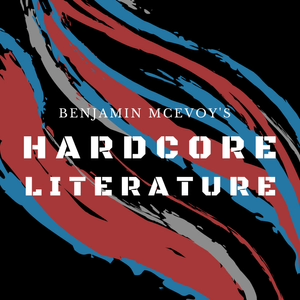
116d. Mind-oriented vs. Virtue-oriented learning processes
08/05/21 • 71 min
1 Listener
This is a continuation of the discussion of Jin Li's book Cultural Foundations of Learning, East and West. In this recording, I discuss the differences between Western learning process concepts (active learning, exploration and enquiry, critical thinking, and self-expression) and Chinese ones (sincerity, diligence, endurance of hardship, perseverance, and concentration).
Enjoy the episode.
This is a continuation of the discussion of Jin Li's book Cultural Foundations of Learning, East and West. In this recording, I discuss the differences between Western learning process concepts (active learning, exploration and enquiry, critical thinking, and self-expression) and Chinese ones (sincerity, diligence, endurance of hardship, perseverance, and concentration).
Enjoy the episode.
Previous Episode

116c. East Asians don't respond to intrinsic motivation, and other gems
This is the third in a series of recordings on Jin Li's book Cultural Foundations of Learning, East and West. In this episode we will see a range of empirical data reflecting the differences between the cultures in question, mostly from psychology, including issues of motivation, attitudes to competition, and the language which is used to describe learning. I will also discuss British and Chinese students' views of the nature of understanding, pointing out what existing cognitive science has to say about this issue.
Enjoy the episode.
Next Episode

116e. Curiosity begets enquiry, heart begets dedication
This is a continuation of the series on Jin Li's book Cultural Foundations of Learning, East and West. In this episode, we will see the emotional side of learning, with a Western focus on interest, curiosity, and enquiry juxtaposed against an Eastern focus on dedication, conviction, and commitment.
This also leads to a different conceptualisation of time within the sphere of learning, which leads to concepts like success and failure make less sense in a Chinese cultural context. Since the process of learning never ends (or, at least, is considered to be very long), one cannot that one has reached "success" or "failure" at any stage, as things could always get better (through application and virtue) or worse (through becoming slack and irresponsible). Westerners, in contrast, have a much shorter-term and piecemeal view, seeing motivation as dependent on the nature of the material (empirically shown to not be important to Easterners), and viewing learning problems as requiring technical solutions (rather than heart- and character-based solutions proposed by the East). This is also reflected in (Western) psychology research, with emphases on achievement motivation, intrinsic motivation, and self-esteem, none of which have much currency or empirical validity, or for that matter make any sense, in an East Asian context.
Enjoy the episode.
If you like this episode you’ll love
Episode Comments
Generate a badge
Get a badge for your website that links back to this episode
<a href="https://goodpods.com/podcasts/education-bookcast-25447/116d-mind-oriented-vs-virtue-oriented-learning-processes-15904304"> <img src="https://storage.googleapis.com/goodpods-images-bucket/badges/generic-badge-1.svg" alt="listen to 116d. mind-oriented vs. virtue-oriented learning processes on goodpods" style="width: 225px" /> </a>
Copy



